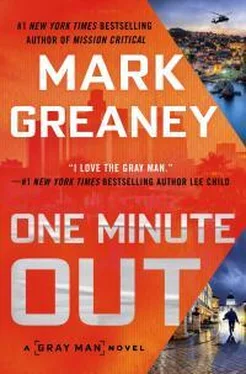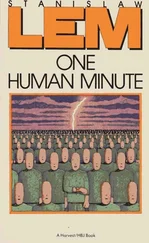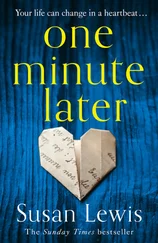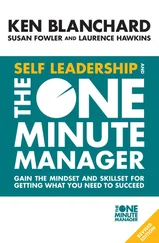Talyssa cocks her head. “You are saying . . . you are saying you are going to torture him?”
“There’s a good chance he won’t tell us anything if we ask nicely, which means this is going to get ugly. If you don’t want to be around to see it, I get it. I’ll ask him questions about your sister’s murder if you want me to.”
“Her disappearance,” she corrects.
“That’s what I meant.”
I can hear fresh nerves in her voice now. “Are you going to kill him when you have the information?” She thinks I’m a bad man, and she thinks I’m nuts. Yet still she seems all too eager to receive my help.
“I’m not going to kill him,” I say, but I know I might be lying. There are a lot of ways that this can go down. It will be a violent encounter when I take him, and if that son of a bitch draws on me, I’m going to put a couple of rounds through his heart and end him. But I’m doing my best to keep Talyssa on board, because I need her help.
Her continued suspicion is evident. “I still don’t know who you are, Harry.”
“I’m the guy here to screw with the people who run the pipeline.”
“But why ? Why do you care? Did they kill your sister, too?” She says it sarcastically, but I can tell she needs to know something.
“No.” I think about making up a story, but decide against it. This girl is being straight with me, more or less. Not completely, I know there is a missing piece to her narrative, but I haven’t pushed her about it yet. Still, she deserves some truth. “Two nights ago I went to a farm thirty kilometers from here. I was doing a . . . a thing, but I discovered a room full of sex trafficking victims. They wouldn’t leave with me, afraid of what would happen to their families back home.
“I think there is a chance the women will be . . . will be punished for me showing up there. And I can’t just walk away from that. I need to try to help them somehow.”
She seems astonished by what I just told her. “The way station? You found the way station here? You saw the women?”
“I did.”
Corbu reaches quickly across the table to where her jacket lies over a chair and shoves her hand into a side pocket. Startled by the rapid movement, I rise to my feet, spin towards her, and go for the pistol inside my waistband on my right hip, all in one motion. I draw faster than her hand comes out. “Don’t pull it!” I say with authority. I don’t know what “it” is, but she’s going for something obviously, and I’m trained to do whatever’s necessary to avoid surprises.
She freezes solid, and the poor girl looks like she’s about to wet herself. In a stuttering voice she says, “It’s . . . it’s just a picture. I want to show you a picture.”
“A picture? Bring it out slowly.”
The hand comes out, there is a palm-sized photo in it, and I holster the gun. As Corbu offers it to me she eyes my Glock, now back on my hip. She asks, “What kind of thing were you doing at that farm?”
“The kind of thing you really don’t want to ask about.”
“You were trying to rescue the women?”
I shake my head. She looks me in the eyes and registers my intensity, and she doesn’t ask me for any more details.
As I take the picture from her, she says, “My sister, Roxana.” Corbu’s voice turns hopeful now. “Did you see her there? Anyone who looked like her? She doesn’t usually wear so much makeup, but this is the most recent photo I have. A cousin’s wedding in Timisoara in May.”
Before I even look I say, “The Serbian told your mother she was dead.”
I watch pain in her face reappear, clouding over her new excitement. “Yes. I guess I am just holding out a little hope that—”
“I get it.” Hope isn’t a strategy, as my mentor Maurice used to say, but it does go a long way in helping us deny the awful truth.
I look down at the image now. Two women stand at a party in flowing dresses, a flute of champagne in each one’s hand. At first I don’t recognize Talyssa on the left. She has longer dishwater-blond hair in the photo, and now her hair is dyed red and cut shoulder length. And she’s wearing makeup, while now her face is unadorned. She’s by no means unattractive, but she’s relatively plain, her features all but nondescript.
Kind of like me, I guess.
Plus, it takes me a moment to associate the dressed-up, confident, happy woman in the picture with the buttoned-up, terrified, exhausted woman seated in front of me.
But next to her in the photo I see another woman. She is stunning. Beyond stunning. She doesn’t even look real.
Talyssa says, “I know what you are thinking. We don’t look like sisters.”
“I wasn’t thinking that,” I say, but in truth, that’s exactly what I’m thinking.
Roxana’s features are all soft, her eyes large, her lips full. Where Talyssa has blond hair, this woman is a brunette, and she is easily four inches taller than Talyssa.
“We have different fathers. And she’s six years younger than me.”
Looking over the photo, I feel sure I’ve never seen Roxana before in my life. I’d remember someone who looked like that, I’m certain.
But I keep staring in silence for a few seconds. I really don’t remember any of the faces I saw in the cellar. I only remember Liliana; she is Moldovan, and she looks nothing like the girl in this photo.
“I’m sorry. I didn’t see her . . . but it was dark, and there were a lot of girls in the—”
“Never mind. She’s dead. I know she’s dead. I keep telling myself not to think about finding her alive.” She pauses. “The only thing I can realistically hope to find are her killers. Maybe they will lead me to her body.” She looks at me with suddenly fierce eyes. “I’ll find you a place to take Vukovic. It will be far from the road, far from people, and covered.” With a cold smile she adds, “He can scream all he wants . . . and nobody will come to save him.”
I raise my eyebrows. “You’re starting to get the hang of this.”
TWELVE
Captain Niko Vukovic ran the police force in Mostar, but that wasn’t where he made his money. He was paid by the Serbian mafia in Belgrade for a number of things, but his main income came from assisting with the flow of trafficked humans from the East, on their way to the West, the Middle East, and even Asia.
Vukovic didn’t know the scope of the operation in which he played a part. No, he was a big fish in a small pond, and his pond was Mostar. Here, as far as he was concerned, he was in command. Not that old general who’d run the way station until the night before last, but the police captain who had kept the pipeline open through the territory for the past several years.
After Babic’s obviously politically motivated assassination, Vukovic worried that those involved in the pipeline would hold him accountable, even though his job was not to provide physical security for the general but rather safe passage of the women on the roads to and from the way station, and police coordination if something went wrong. Still, the first thing he did when he heard about the attack on the farm was to assign himself four of his best officers to act as a security detail.
The four all took money from the Branjevo Partizans, the Belgrade mob, same as Vukovic. He figured they could be trusted to watch over him, both during his regular police work and when escorting him to a restaurant frequented by one of his Serbian mob contacts on the second floor of a small hotel on Stari Pazar Street.
The hotel was in the hilly Old Town at a cobblestoned intersection a block from the swiftly flowing Neretva River. It was luxurious by local standards, and the neat lobby was nearly empty. He walked up the stairs with his entourage to the restaurant and found it all but deserted, as well. It was late for lunch but early for dinner, his preferred meeting time with his contact.
Читать дальше












